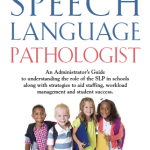Universal Supports II

I recently wrote a post on Universal Supports geared toward administrators. I’ve worked in schools both with and without Universal Supports and I can tell you that those with Universal Supports run much smoother, fewer children have organizational difficulties and classrooms seem more manageable. I want to know what kind of Universal Supports you school or district are using?
In the school I currently work in they have a simple behavioral plan with levels. If the child reaches the bottom level the consequences are clear. Not only do they spend time in the office doing independent work, there is detention involved and the possible loss of the fun weekly activity. The students are clear on the school behavioral expectations. Because of this, our principal can keep the attention and behavior of the whole school with very little effort or need for extra discipline. I actually chuckled a little at the beginning of the year. The young administrators thought they had discovered something new and exciting. Honestly it reminded me of the rules and expectations of Catholic School. Looking back and knowing what I know now rules and expectations for both behavior and academics are necessary. The Nuns must have known something we didn’t know. Maybe some of the old ways are just better.
- All ‘keeper’ papers 3-hole punched before being distributed to kids
- Agendas posted with learning goals
- Team-wide homework posted in every classroom
- Visual supports for all key verbally presented concepts
- Consistent use of summarizers at the end of class
- Articulated (and posted) expectations for different settings that are clear and observable (behavior for cafeteria, hallways, recess, classroom)
- Team-wide blogs that list homework, week-by-week learning goals and a brief description of delivery of instruction so specialists can come in and have a clue what’s going on (this idea was suggested by a teacher)
- Routines for completing agenda at the end of every class that may include peer support (exchange with a partner to make sure it’s readable and complete)
- Collection of needed materials for homework that night done class-by-class (maybe kids carry a tote bag only for needed homework materials)
- Team-wide routines for homework collection closely monitored (same in every class)
- Regular study skills lessons before major tests done during flex modeled by teachers (use of flashcards, how to create a study guide, etc)
-
Get one, give one community service program. Students and teachers make note of needs among the team, such as students who need extra support with organization, kids who need lunch friends, etc.. The ‘jobs’ are posted, and volunteers sign up. Kids get ‘community service’ points for helping out and doing a good job. There can be training for students to deliver certain kinds of jobs, too.
Now as a Speech Language Pathologist I would like to see Universal Supports around vocabulary development. Perhaps everyone introducing new curriculum vocabulary by using roughly the same format, such as vocabulary card the kids create (always providing a knowledge connection). I think having similar classroom procedures for morning and afternoon routines. There should be some type of activity that involves playing with language (jokes, riddles, funny stories, rephrasing sentences are a few examples). Using Universal Supports also makes it easier for consulting staff. We can go in and know the discipline rules and basically how the classroom functions.
Let me know what your school does or what you think would be a good Universal Support.







